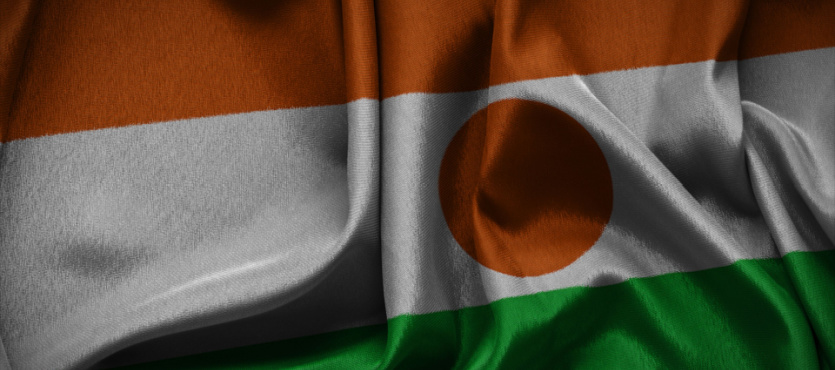Thousands of people backing a recent coup in Niger marched through the streets of the capital, denouncing the country’s former colonial power and setting a door at the French Embassy ablaze on Sunday before the army broke up the crowd. French President Emmanuel Macron said Sunday that attacks on France and its interests would not be tolerated, and anyone who attacks French citizens will see an immediate response.
The Wagner Group is operating in neighboring Mali, and President Vladimir Putin would like to expand his country’s influence in the region. He might receive a warm welcome. In a separate protest, some people waved the Russian flag and chanted pro-Moscow slogans. However, the new junta’s leaders have not said whether they would move toward Moscow or stick with Niger’s Western partners.
Some leaders of the mutiny said they overthrew Bazoum because he was not able to secure the nation against growing jihadi violence. But some analysts and Nigeriens say that was a pretext for a takeover driven by internal power struggles.
At an emergency meeting Sunday, the West African bloc known as ECOWAS said that it was suspending relations with Niger and authorized the use of force if President Mohamed Bazoum is not reinstated within a week. The African Union has issued its own 15-day ultimatum to the junta in Niger to reinstate the democratically elected government.
Situation in Niger
For nearly 600 years, beginning around 1000, the powerful Songhai Empire ruled most of what is now Niger. Askia the Great, who sat on the throne from 1493 to 1528, centralized the bureaucracy, opened religious schools, constructed mosques, and opened his court to scholars and poets from throughout the Muslim world.
However, after his death, family squabbling, shiting European trade routes, internal rebellions, and an unexpected Moroccan invasion sent the nation into a tailspin. Modern-day Niger, which emerged from the ruins of the Songhai Empire, is still in a tailspin.
Niger is one of the world’s poorest counties. Most Nigerens manage to eke out a living as subsistence farmers as the Sahara Desert claims more and more fertile land. Other serious challenges include a low literacy rate, jihadist insurgencies, and rapid population growth.
Nevertheless, as recently as 2010, Niger was on the right path. Voters approved a new constitution. They elected and re-elected former National Assembly leader Mahamadou Issoufou as president. Niger passed an important test when in 2021, Mohamed Bazoum was sworn in as the new president.
But unrest due to the government’s failure to address the aforementioned problems, as well as persistent al Qaeda, ISIS, and Boko Haram insurgencies, laid the foundation for a failed coup in 2021 and a successful coup in 2023.
After UN peacekeepers leave, many observers believe Niger will turn to the Wagner Group, which according to many, was responsible for the coup.
Contractors in Niger
The United States does not release specific information about private military contractor deployment. No government publicizes troop movements. But American contractors are probably in Niger, or at least they were there as part of the UN mission.
Military Support
In 1970, American and South Vietnamese forces launched the Cambodian “incursion” and “liberation” campaign against communist strongholds near the South Vietnam border. But for the most part, government forces have no interest in expanding a war zone. Instead, they try to limit fighting as much as possible. Private military contractors and their commitment to military support jive well with this objective.
Contractors patrol the streets, set up checkpoints, and otherwise deter terrorist activity. Most private military contractors are former law enforcement personnel, so they are very familiar with this approach. This mission extends to unarmed contractors, who contribute to security as well. More on that below.
If contractors go into the field, they stay behind other military forces, usually government military forces, so these soldiers can do their jobs without looking over their shoulders.
Nonmilitary Support
Insurgents usually enjoy some level of popular support and make good use of hit-and-run tactics, which inflict some damage and make the headlines, which in turn draws new recruits to the group.
But insurgents do not have drones, helicopters, and other advanced weapons. That is usually the only edge government forces have. Private military contractors maintain these systems, giving often overmatched government forces the advantage in combat.
Reconstruction
We mentioned Vietnam above. Arguably, the Americans won that war. They and their allies never lost a major battle. But the other side won the peace. The negotiated solution was not strong enough to prevent further conflict after the Americans left.
So, after the soldiers move on, contractors often move in. Simple acts like building schools and securing street corners help people feel safe and, probably more importantly, show them that their government cares about them.
People who feel safe and confident are less likely to join rebel groups seeking change. Therefore, effective postwar reconstruction helps kill insurgencies at their roots. As a bonus, the local government develops closer ties with the American government.
Injury Compensation Available
All these activities are very dangerous. Furthermore, countries like Niger do not have good medical facilities. Transportation to a larger hospital that is probably on another continent significantly increases the injury treatment and recovery process.
If contractors suffer either a trauma injury, like a fall, or occupational disease, like toxic exposure, while they are serving in an overseas war zone, the Defense Base Act pays all reasonably necessary medical bills. These expenses usually include everything from transportation to a hospital to the final day of physical or occupational therapy.
Injured victims do not need to prove fault or negligence to obtain these benefits. Instead, they are available as long as there is a nexus (direct or indirect connection) between their deployments and their injuries.
If the victim sustains a permanent injury, and that injury is either totally or partially disabling, additional compensation is usually available for anticipated future medical expenses.
For more information about the claims process, contact Barnett, Lerner, Karsen, Frankel & Castro, P.A.

